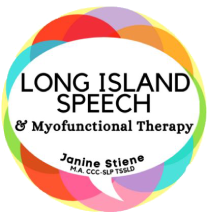Blog
Autism Spectrum Disorder
The American Speech-Language Hearing Association (ASHA) stated the following:
What is autism?
Autism is a developmental disability that causes problems with social skills and communication. Autism can be mild or severe. It is different for every person. Autism is also known as autism spectrum disorders.
What are some signs or symptoms of autism?
Children with autism may have problems with communication, social skills, and reacting to the world around them. Not all behaviors will exist in every child. A diagnosis should be made by the child’s doctor or other professional with experience in working with children with autism. Possible signs and symptoms are outlined below.
Communication:
- Not speaking or very limited speech
- Loss of words the child was previously able to say
- Difficulty expressing basic wants and needs
- Poor vocabulary development
- Problems following directions or finding objects that are named
- Repeating what is said (echolalia)
- Problems answering questions
- Speech that sounds different (e.g., “robotic” speech or speech that is high-pitched)
Social skills:
- Poor eye contact with people or objects
- Poor play skills (pretend or social play)
- Being overly focused on a topic or objects that interest them
- Problems making friends
- Crying, becoming angry, giggling, or laughing for no known reason or at the wrong time
- Disliking being touched or held
Reacting to the world around them:
- Rocking, hand flapping or other movements (self-stimulating movements)
- Not paying attention to things the child sees or hears
- Problems dealing with changes in routine
- Using objects in unusual ways
- Unusual attachments to objects
- No fear of real dangers
- Being either very sensitive or not sensitive enough to touch, light, or sounds (e.g., disliking loud sounds or only responding when sounds are very loud; also called a sensory integration disorder)
- Feeding difficulties (accepting only select foods, refusing certain food textures)
- Sleep problems
How is autism diagnosed?
It is important to have your child evaluated by professionals who know about autism. Speech-language pathologists (SLPs), typically as part of a team, may diagnose autism. The team might include pediatricians, neurologists, occupational therapists, physical therapists, and developmental specialists, among others. SLPs play a key role because problems with social skills and communication are often the first symptoms of autism. SLPs should be consulted early in the evaluation process. There are a number of tests and observational checklists available to evaluate children with developmental problems. The most important information, however, comes from parents and caregivers who know the child best and can tell the SLP and others all about the child’s behavior.
What treatments are available for people with autism?
There is no known cure for autism. In some cases, medications and dietary restrictions may help control symptoms. Intervention should begin when the child is young. Early intervention and preschool programs are very important. An evaluation by an SLP should be completed to determine social skill and communication needs. An appropriate treatment plan that meets the needs of the child and family can then be established. Treatment may include any combination of traditional speech and language approaches, augmentative and alternative communication, and behavioral interventions. It is also important to have the child’s hearing evaluated to rule out hearing loss.
Autism is a lifelong problem with a number of possible causes, including but not limited to:
- genetic problems or syndromes
- severe infections that affect the brain (meningitis, celiac disease, encephalitis, etc.)
- exposure to toxins or illness during pregnancy (rubella, chemicals, etc.)
What other disorders are similar to autism?
Autism is often referred to as autism spectrum disorders. Severity and signs and symptoms vary greatly from person to person. Other terms are used to describe disorders that are similar to or even part of autism spectrum disorders. These disorders are typically included under the term pervasive developmental disorder.
Pervasive developmental disorder (PDD)
PDD is sometimes used to describe any group of developmental disorders that affect social skills and communication. PDD is used by some people to refer to autism, although the difference between the two is under debate. PDD may refer to any of five diagnoses:
- Autistic disorder (autism)
- Asperger’s syndrome—severe and sustained problems with social skills, with repetitive behaviors and restricted interests and activities. Language skills tend to be good, although social communication may be affected.
- Rett’s disorder—a progressive brain disorder that occurs almost only in girls. Children tend to develop normally for a period of time followed by loss of skills, especially hand skills, which are replaced by repetitive hand movements. Symptoms begin between the ages of 1 and 4 years old. Poor eye contact, a lag in brain and head growth, problems walking, language problems, and seizures are also symptoms.
- Childhood disintegrative disorder—a rare condition that occurs without a known medical cause. Typically children have at least 2 years of typical development before the beginnings of severe loss of skills in a number of areas, such as language, social skills, play, or motor skills. This disorder is associated with severe cognitive impairment.
- Pervasive developmental disorder – not otherwise specified (PDD-NOS)—an overall delay in development of communication and social skills that does not fit into another category and does not have a known cause.




